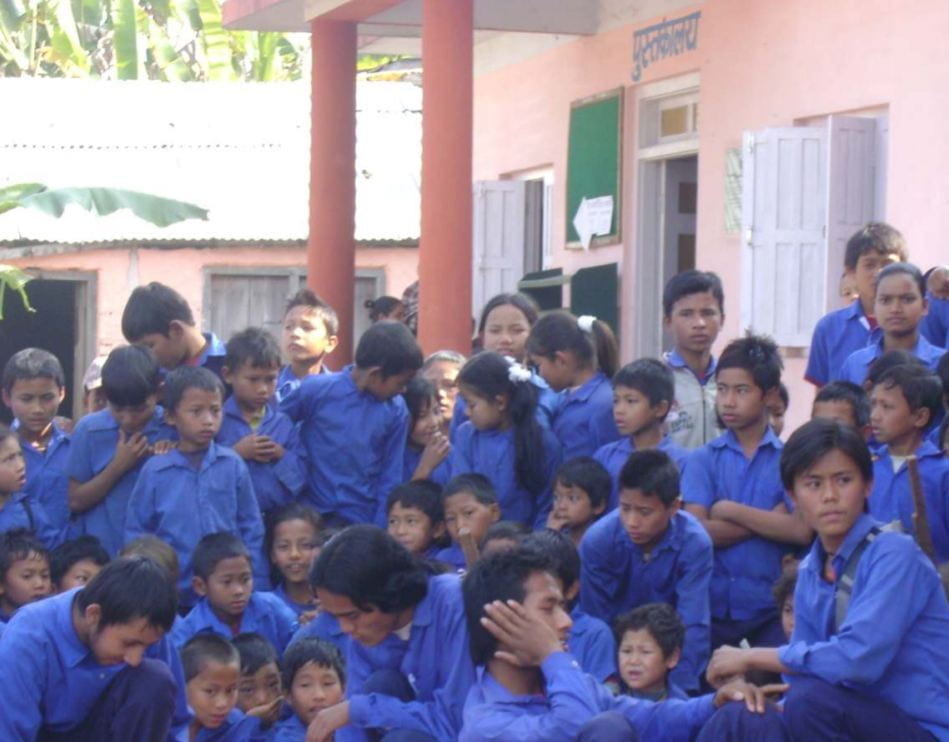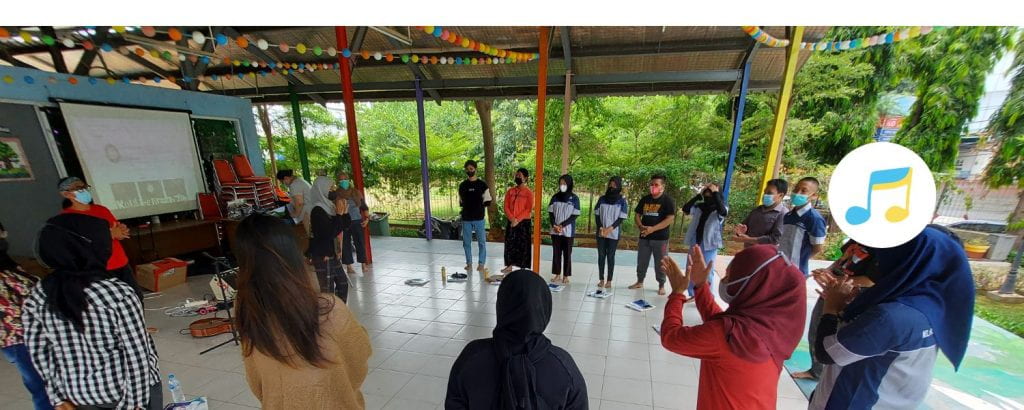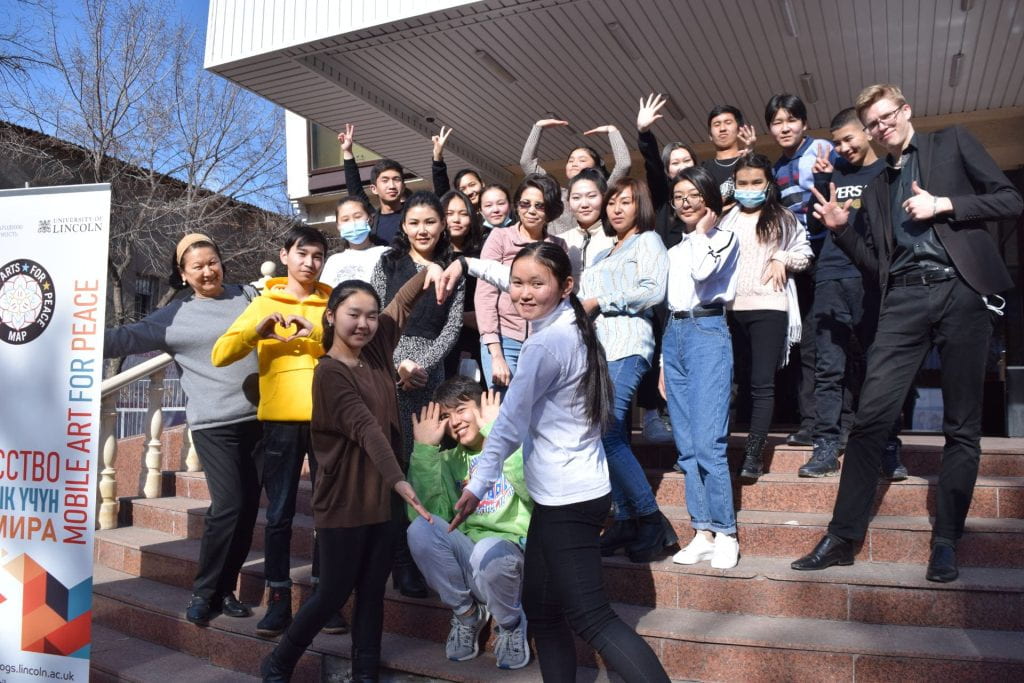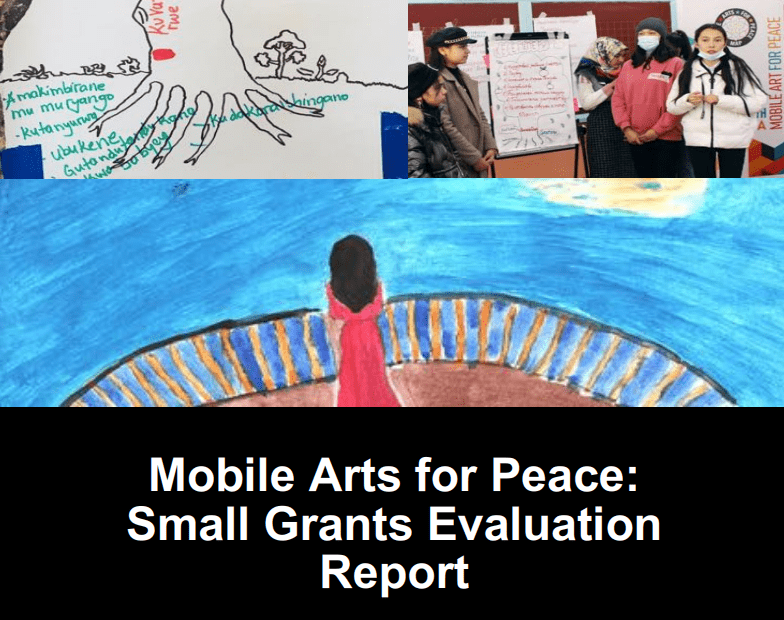UNICEF Innocenti has published “Beyond Being Heard: The right of children and youth to participate in civil and political processes in a changing world” (August 2025). The paper explores common struggles in child participation, such as the power paradox, the costs of speaking up, and the challenges of digital engagement. It also highlights pathways to…
MAP International Online Conference 2025: Session Summaries Report
On 10–11 July 2025, MAP held its International Online Conference, bringing together youth researchers, practitioners, and academics to deepen conversations around arts-based peacebuilding with and for children and young people. This year’s conference marked a milestone in MAP’s journey, as the UK National Commission for UNESCO endorsed the proposed UNESCO Chair in Arts-Based Methods for…
Journal article: Reimagining Peace Education in Nepal: Arts-Based, Learner-Centric Pedagogy for Social Justice and Equity
Original source: https://www.suprajournal.com/article/reimagining-peace-education-in-nepal-arts-based-learner-centric-pedagogy-for-social-justice-and-equity-pn6xag Abstract In post-conflict and socially diverse societies like Nepal, peace education remains deeply challenged by entrenched hierarchies, curriculum rigidity, and marginalization of local knowledges. Drawing on the Mobile Arts for Peace (MAP) action research initiative, this paper critically examines how arts-based, learner-centred pedagogy—grounded in participatory action research—can promote learner agency, intergenerational dialogue,…
Curricula: Mithila art-focused local curriculum in Nepal
Here is the Mithila art lesson plan, designed for Grades 1 to 5 as part of developing a local arts education curriculum in Nepal (click here to read the introduction on the Mithila art local curriculum in Nepal) and learn more about the curriculum development process here. Nepali version English version…
Manuals and toolkits: GENPEACE Children’s Participation Module in the Development Process

The “Children’s Participation Module in the Development Process” was created as one of the outputs of the GENPEACE Project in Bandung, Indonesia. …
Journal article: [Working Paper] Gira Ingoma – One Drum per Girl: The culture we want for the woman we want

This paper examines the evolution and impact of the drumming troupe Ingoma Nshya and of the more recent education project Gira Ingoma. The authors first look at the history of Ingoma Nshya and Gira Ingoma to show how these initiatives mirror and push forward the country’s evolution towards gender equality and inscribe women at the heart of the arts and of history. They then examine the points of oppositions to the projects to show how the representations of traditional gender roles and what a (good) Rwandan woman should be keep hindering the emancipation of women. Finally, the authors highlight Ingoma Nshya’s and Gira Ingoma’s interventions in the debate as they build a new repertoire for women and blur the lines of gender in a way that gathers significant support from their community and the District of Huye….
Curricula: Beyond Tradition: Psychosocial Model

Psychosocial support and character building have been integral to the Beyond Tradition project’s long-term process. Participants in this program engage in collaborative activities, consult psychologists or counsellors to address challenges encountered during the process, provide regular feedback and reflections throughout the training, and participate in various exercises designed for self-discovery and building connections with others….
Curricula: Beyond Tradition Module: Revitalizing Lenong as a Model for Teaching Betawi Arts

Lenong, a traditional Betawi art form dating back to the early 20th century, is more than just entertainment. As a folk theatre, it also serves as an educational tool for the community. Lenong Preman, a specific type of Lenong, stands out for its interactive nature, fostering two-way communication between performers and audience. This element of…
Curricula: Beyond Tradition: Lenong Revitalisation as a Model for Teaching Betawi Cultural Arts

The Beyond Tradition’s Lenong revitalisation programme has been implemented and tested in the period between August 2022 and March 2024. The trials carried out then resulted in the “Beyond Tradition: Revitalising Lenong as a Teaching Model for Betawi Arts” model, which illustrates the five stages leading up to the performance of Lenong on stage. This…
Journal article: [Working Paper] Facing Heaven – Déuda Folklore & Social Transformation in Nepal

This paper explores the transformative role of Déuda, a traditional Nepalese singing and performance art, as a catalyst for social change and collective action. …
Curricula: Building Community Curriculums

This guide draws on learnings from MAP co-creation and advocacy workshops carried out with 390 youths and students in four districts of Nepal between January and November of 2023. …
Curricula: Pilot Lesson Plan Nepal: Arts-based Approached to Education

From October 2023 to July 2024, a research team from Kathmandu University partnered with Mobile Arts for Peace (MAP) to develop a pilot Nepal Arts Education Framework. The goal was to adapt and integrate MAP’s art-based exercises into existing secondary school curricula for Culture and Arts Education. This was a need articulated at the UNESCO-MAP…
Journal article: Creating ownership: Strengths and tensions in co-production with children, young people, and adults across contexts

Cite this article: Paterson-Young, C., Adhikari, J., Lee, L., Maher, M., & Wright, L. H. V. (2024). Creating ownership: Strengths and tensions in co-production with children, young people, and adults across contexts. Childhood, 0(0). https://doi.org/10.1177/09075682241266814 Abstract The inclusion of young people in conducting research leads to the creation of shared knowledge, honest communication, and increases…
Manuals and toolkits: Body Mapping Storytelling Toolkit

Below is the detailed step-by-step toolkit to facilitate body mapping storytelling workshops developed by the AHRC MAP PhD researcher, Anna Smirnova….
Evaluation report: Mobile Arts for Peace (MAP) Large Grant Evaluation – Joint Report

The overall research aim for the Large Grant Monitoring, Evaluation and Learning (MEL) project was to explore the use of interdisciplinary arts-based practices for peacebuilding in Indonesia, Kyrgyzstan, Nepal and Rwanda, including political, cultural, religious and linguistic factors, as well as the crosscutting issues of gender and intersecting inequalities, environments and the exclusion of children…
Evaluation report: MAP Large Grant Main Report – Indonesia, Kyrgyzstan, Nepal and Rwanda by Institute for Social Innovation and Impact, University of Northampton

This research project sought to evaluate the efficacy and impact of the MAP project across all four countries; however, the evaluation was carried out primarily in partnership with Foundation for Tolerance International (FTI) in Kyrgyzstan and Pusat Kajian Pembangunan Masyarakat Universitas Katolik Indonesia Atma Jaya (CSDS-AJCUI) in Indonesia, with both countries acting as specialist qualitative…
Evaluation report: Mobile Arts for Peace (MAP) University of Edinburgh Large Grant Report: An evaluation of impact of the Medium Grants in Rwanda and Nepal

The MAP Monitoring, Evaluation, and Learning Large Grant in Rwanda and Nepal was led by the University of Edinburgh (UoE) in partnership with the Human Rights Film Centre (HRFC), TPO Nepal, Uyisengi ni Imanzi, and the International Youth Advisory Board. The lead writers on this report were Dr. Laura Wright (Project Investigator) University of Edinburgh…
Book chapter: Children, Youth, and Participatory Arts for Peacebuilding: Lessons from Kyrgyzstan, Rwanda, Indonesia, and Nepal

This book demonstrates how participatory arts-based approaches can help children and youth contribute to peacebuilding within post-conflict contexts and to their communities. Cultural forms of storytelling through visual arts, drama, music, and dance can help to enhance post-conflict community well-being, social cohesion, and conflict prevention. However, in the planning and implementation of these arts-based projects,…
Summary baseline report: Mobile Arts for Peace (MAP) Nepal

The MAP project in Nepal was led by Co-Investigators, Rajib Timalsina from Tribhuvan University and Bishnu Khatri from Human Rights Film Centre. The project focuses on delivering arts-based activities that highlight and address gender and other social issues to engage children and youth, including key stakeholders, in identifying key challenges to their participation in civic and political life. …
Summary baseline report: Mobile Arts for Peace (MAP) Indonesia

In Indonesia, the Mobile Arts for Peace (MAP) project was implemented in Jakarta by the university partner, Atma Jaya Catholic University of Indonesia (AJCUI). The project is led by the Co-Investigator, Dr Harla Octarra, partnering with local organisations, such as Child Protection Agency DKI Jakarta (LPA DKI Jakarta) and Yayasan Anak Bangsa Indonesia (YABI). It focuses on marginalised young people aged 12–24 years and involves youth facilitators, social workers, and cultural artists….
Summary baseline report: Mobile Arts for Peace (MAP) Kyrgyzstan

MAP in Kyrgyzstan was initially implemented by the local NGO Foundation for Tolerance International (FTI), with Tajyka Shabdanova serving as Co-Investigator and Anara Eginalieva as Project Manager. In Kyrgyzstan, MAP aimed to engage youth in peacebuilding efforts in various regions, such as Batken, Bishkek, Jalal-Abad, and Osh. Over 200 young people aged between 14-17, coming from diverse ethnic and social backgrounds, actively participated in the project as members of MAP Youth Clubs….
[Portfolio] Participatory Arts for Meaningful Child Participation in Peacebuilding: A Case Study of the MAP Project in Indonesia

This portfolio serves as the body of work, documenting the artistic practice submitted as part of a practice-based PhD research degree. It is accompanied by a written thesis that provides further context and analysis. Vina Puspita‘s practice-based research explores participatory art with young people in urban neighbourhoods in Jakarta to promote meaningful participation in peacebuilding….
Evaluation report: Small Grants Evaluation Report

This report focuses on the Small Grants awarded across the four countries, and acts as a follow-up to the Phase One Report that was produced in the winter of 2021. …

